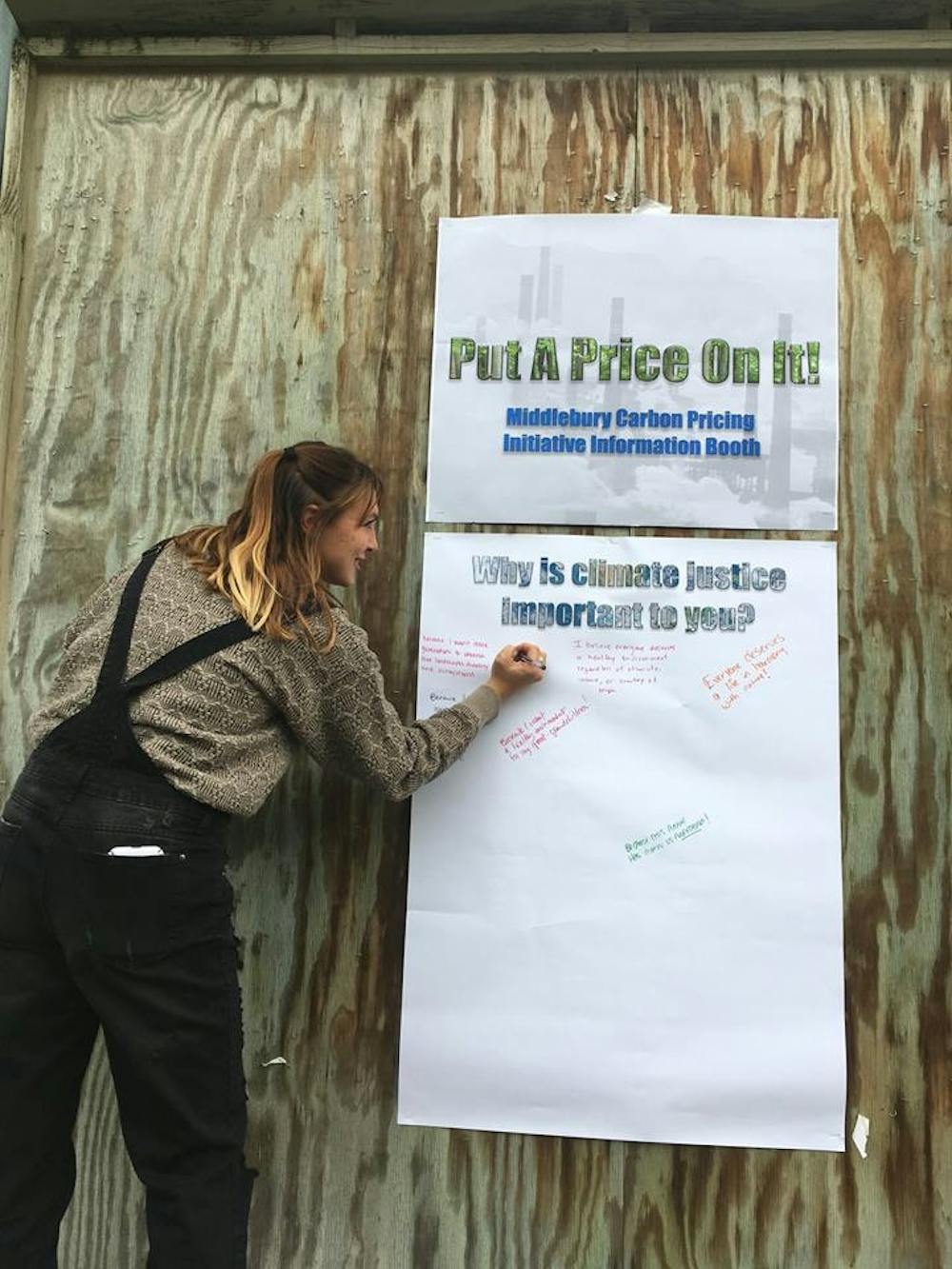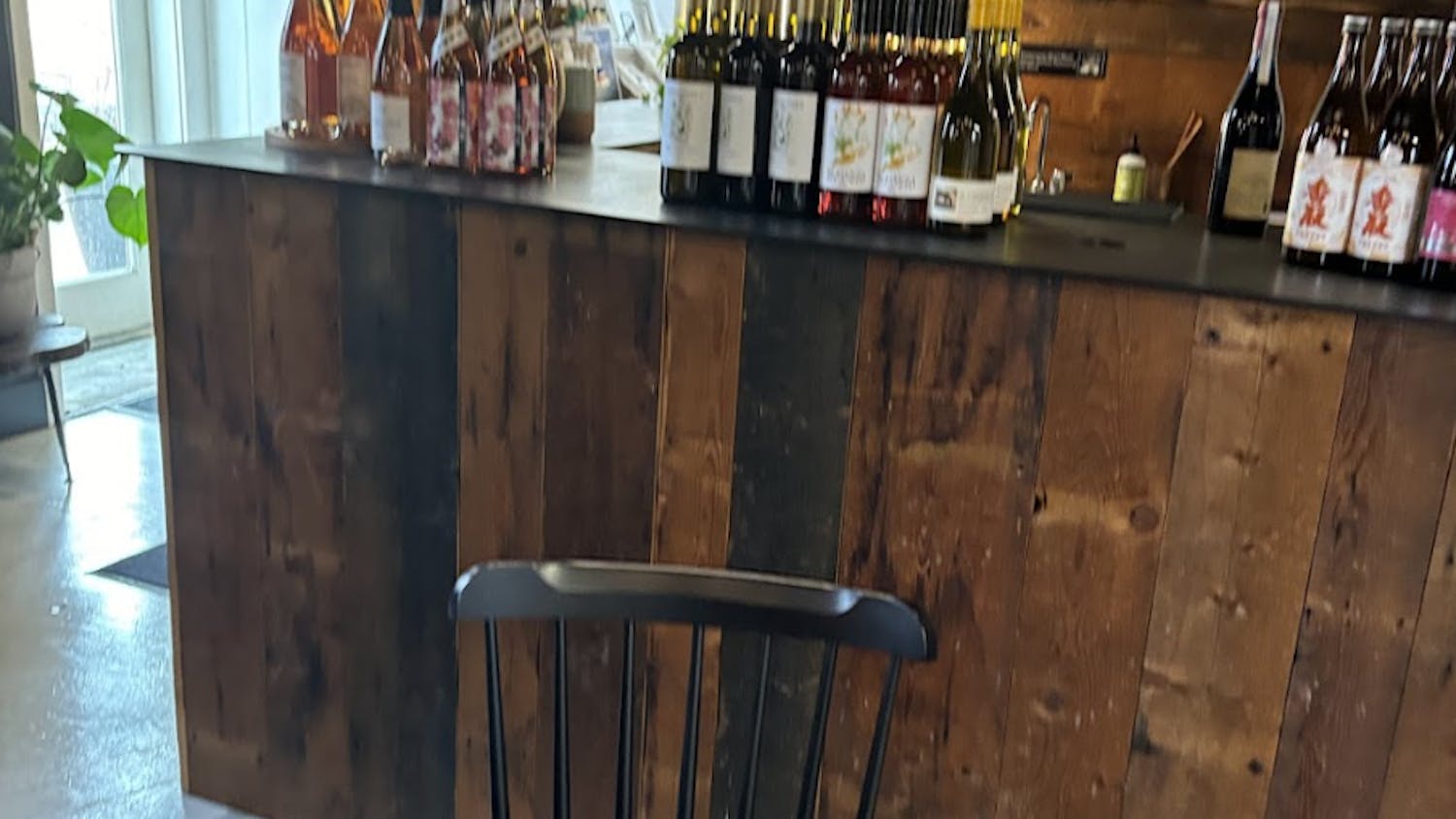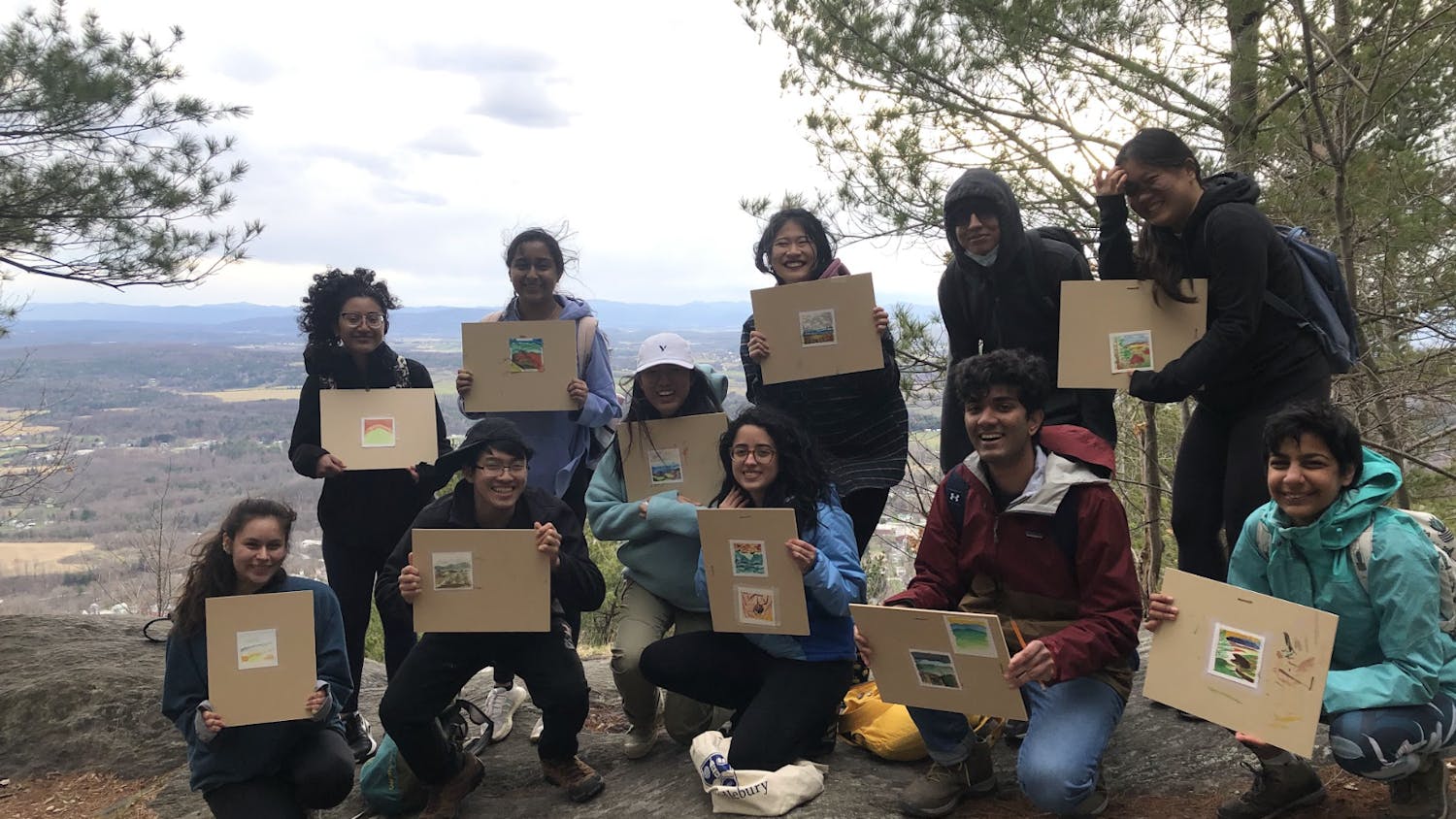MIDDLEBURY — At a public hearing hosted by the Vermont Climate Action Commission in Brattleboro on Thursday, Oct. 5, Middlebury students joined community members to discuss solutions to reduce carbon emissions and fight climate change. Many solutions were proposed, including incentivizing renewables, divestment from fossil fuel companies and government subsidies of weatherization, with carbon pricing being the most popular.
“It really struck me to get to hear from Vermonters because you realize that all of these issues are impacting their lives and the things that they care about,” Oscar Psychas ’21 said about his experience at the hearing. “One thing I love about Vermont is that people are really civically engaged — they really care about making a positive difference in the government. I think it’s an exciting opportunity if Middlebury can be a part of that Vermont community and democratic spirit to take part in finding solutions to these important issues.”
For Vermont, a state reliant on agriculture, addressing these issues is all the more urgent. Following President Trump’s withdrawal from the Paris Climate Agreement, many institutions, states and countries have agreed to continue to try to meet carbon emission reduction goals.
Vermont is a part of these ranks. Governor Phil Scott (R) signed Executive Order No. 12-17 in July 2017, creating the Vermont Climate Action Commission (VCAC) as a part of his commitment to reduce the state’s carbon emissions. The VCAC aims to reduce greenhouse gas emissions in a way that will boost the economy and affect all Vermonters equally.
Although the carbon pricing initiative proved popular among residents, Gov. Scott has rejected the proposal. In a statement from September, Gov. Phil Scott said “I will veto a carbon tax if it comes to my desk because we cannot make Vermont more affordable by making it less affordable.” He also said that “real solutions will strengthen the economy and not add to the crisis of affordability many families and business are facing.”
Many agree with the governor that carbon pricing would negatively affect Vermont residents, citing higher gas prices as a concern.
Bennett Pienkowski ’20.5 explained another perspective: “Carbon pricing will be a net positive for the economy of Vermont because it is a potentially revenue-neutral campaign that will help us reduce emissions. The thought being that if you raise the price on carbon, we will spend less on carbon, and then less money will leave the state in the form of fossil fuel revenues. The money that doesn’t leave the state is going to be spent locally.”
Bennington College student Sabrina Melendez explained this idea further in an interview for VTDigger. “[Revenue-neutral] means taxing carbon emissions of fossil fuel companies at the extraction and distribution level and returning that money to the people of Vermont to make up for higher gas prices,” she said.
According to the Manchester Journal, although the ‘listening tour’ held by the Climate Action Commission has received praise, many are urging Gov. Scott to take the next step and uphold his commitment to the reduction of carbon emissions by supporting a carbon tax in Vermont.
At the Snow Bowl Family Bash on Saturday, Oct. 14, students hosted an educational booth in order to spread the word about the carbon pricing initiative at Middlebury. Leif Taranta ’20.5, a student who worked at the booth, shared some thoughts about the effort.
“We must live in occurrence with the values that we put forth. Middlebury is proud to have a carbon neutral campus and to model environmental sustainability, yet we still have harmful carbon emissions. There are many ways to take responsibility including divestment from fossil fuel companies and investment in renewables, but carbon pricing is one concrete, localized step we can take now, especially because we cannot count on the federal government to take action against climate change,” he said.
In addition to supporting the initiative on a state level, students at the Snow Bowl advocated for localized carbon pricing within Middlebury College.
“For the rest of the semester we’re going to be collecting signatures and getting people excited about supporting a carbon price on campus so that we’re upholding our own commitment to sustainability,” said Psychas. “That carbon price is not going to be coming out of the pockets of students, faculty or staff of the college.” President Laurie Patton has agreed to endorse the petition if enough signatures from the student body are collected, he said.
“We’re a leading education institution, maybe the leading educational institution in the state, and so I think when we take action, especially in such a small state, it sets a tone,” Pienkowski said. “And so if we institute our own carbon charge and get President Laurie Patton to support it, that says a lot.”
The Sunday Night Group, a group that focuses on environmental problems and awareness on campus, particularly climate activism, will be hosting more events in the coming weeks. On Thursday, Oct. 19, at 4:30 p.m. in front of Old Chapel, they will be teaching about divestment, another important step that Middlebury can take towards combating climate change and protecting the environment.
Community Tackles Vermont Carbon Pricing

Comments



